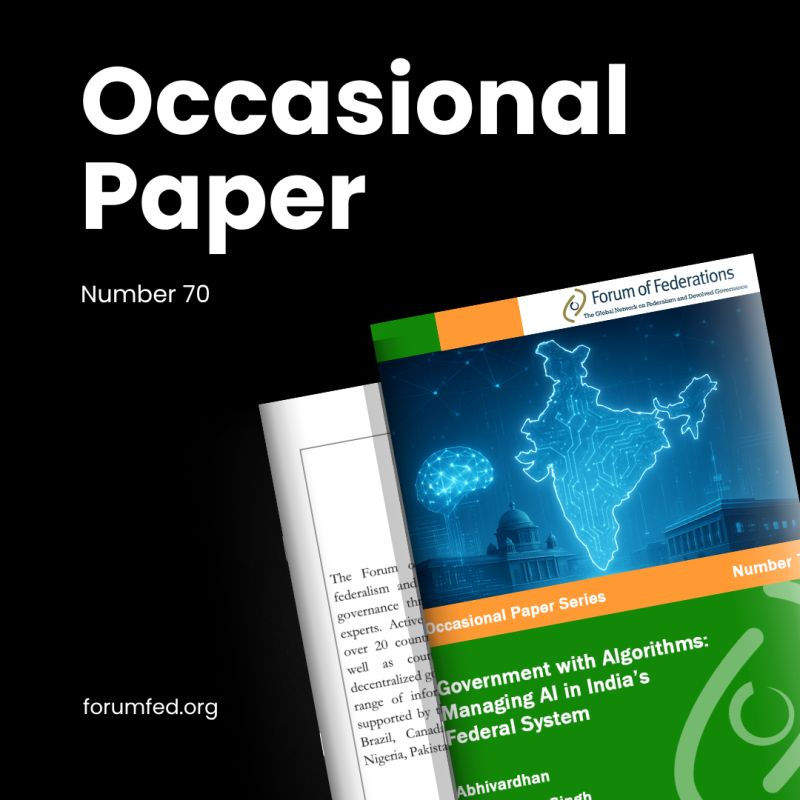ISAIL President has Published a Major Paper on AI and Federalism in Indian Public Policy
- Indian Society of Artificial Intelligence and Law

- Jul 18, 2025
- 2 min read

ISAIL President Abhivardhan and Deepanshu Singh, ISAIL Advisory Council’s Distinguished Expert, have authored a quite serious policy paper on the AI and Indian Federalism in the context of public policy, for the Forum of Federations, Ottawa, Canada, as an Occasional Paper.
You can access the complete paper at https://www.forumfed.org/document/government-with-algorithms-managing-ai-in-indias-federal-system-number-70/

In that regard, this paper is a significant and original international work (perhaps even among the firsts in the world) on the state of India’s AI policy landscape, making it Abhivardhan’s second international publication this year. We congratulate the Forum of Federations to publish such an informative paper.
About the Forum of Federations
The Forum is an international organization that develops and shares comparative expertise on the practice of federal and decentralized governance through a global network.
The Government of Canada provided the impetus for the establishment off the ground with the inaugural International Conference on Federalism held in 1999 at Mont Tremblant, Quebec, Canada. This conference led to the founding of The Forum as an ongoing institution, based in Ottawa. Four consecutive International Conferences have subsequently been held in Switzerland, Belgium, India, and Ethiopia. Following the 2005 Conference in Belgium and the partnership of a number of countries with The Forum, it became a truly international organization. Ten governments have now signed agreements with the Forum and are represented on the Forum’s Strategic Council, supporting the activities of the organization and providing expertise. These countries are Australia, Brazil, Canada, Ethiopia, Germany, India, Mexico, Nigeria, Pakistan, and Switzerland. The Forum has operated field offices in Ethiopia, Sudan, Nepal and Nigeria. Over the years, The Forum has expanded the focus of its work from established federal countries to include countries in post-conflict situations adopting federal forms of governance and those involved in processes of devolution and decentralization.





Comments